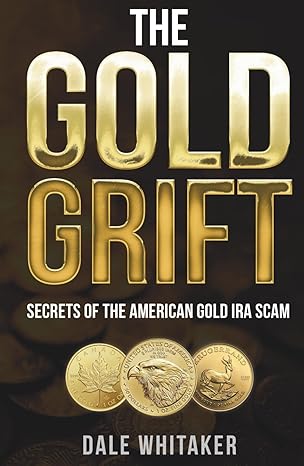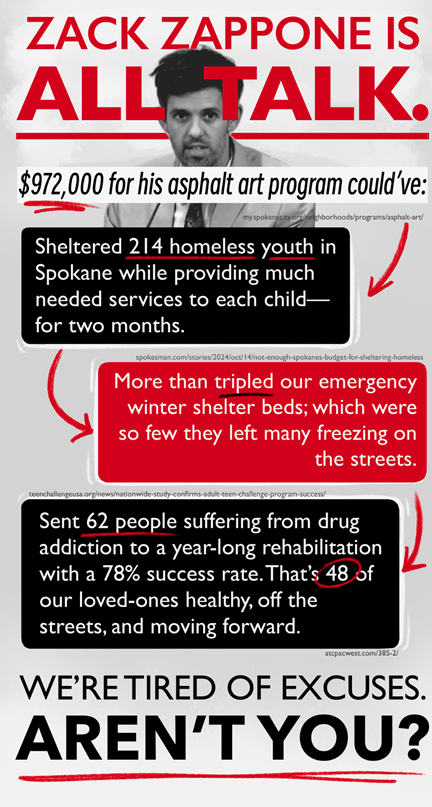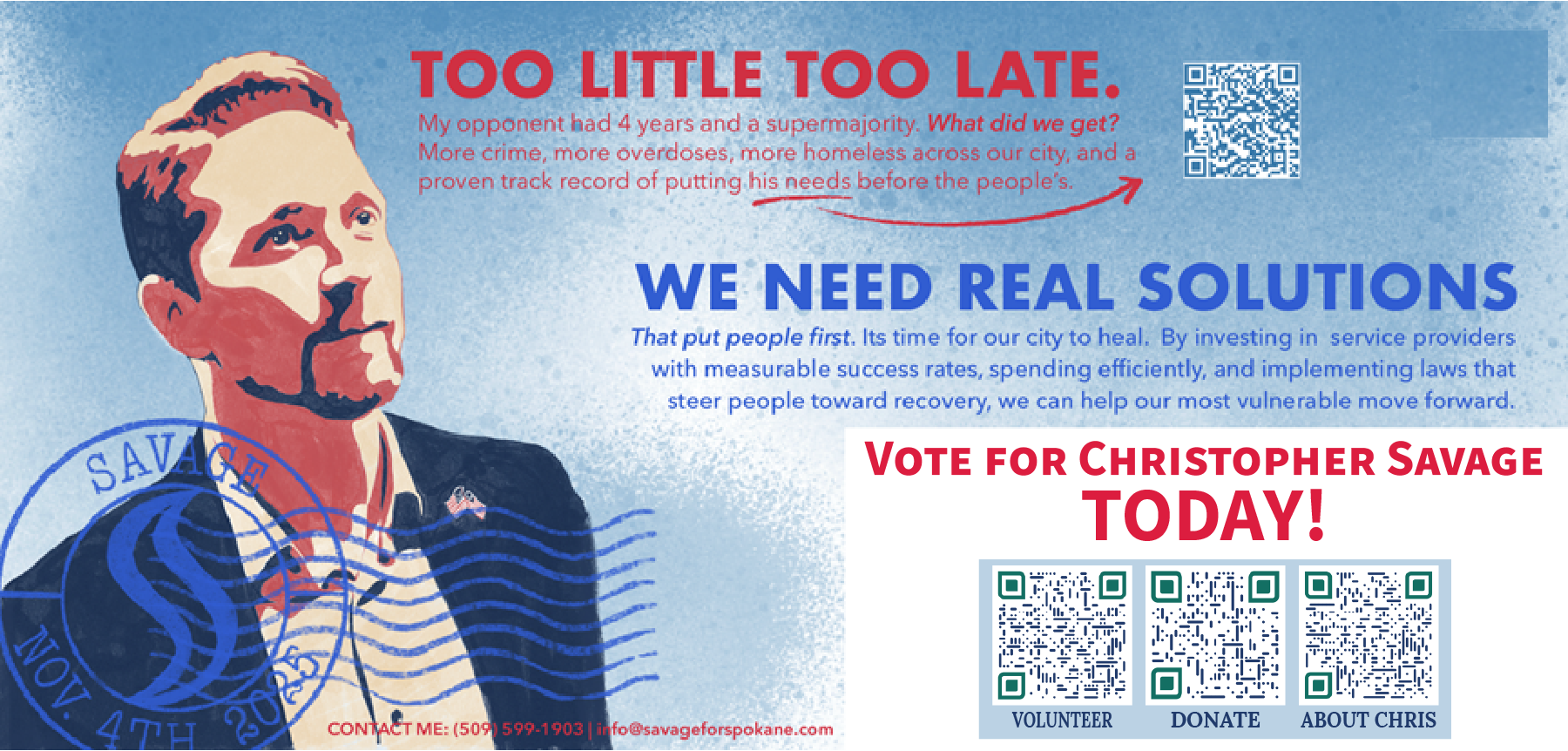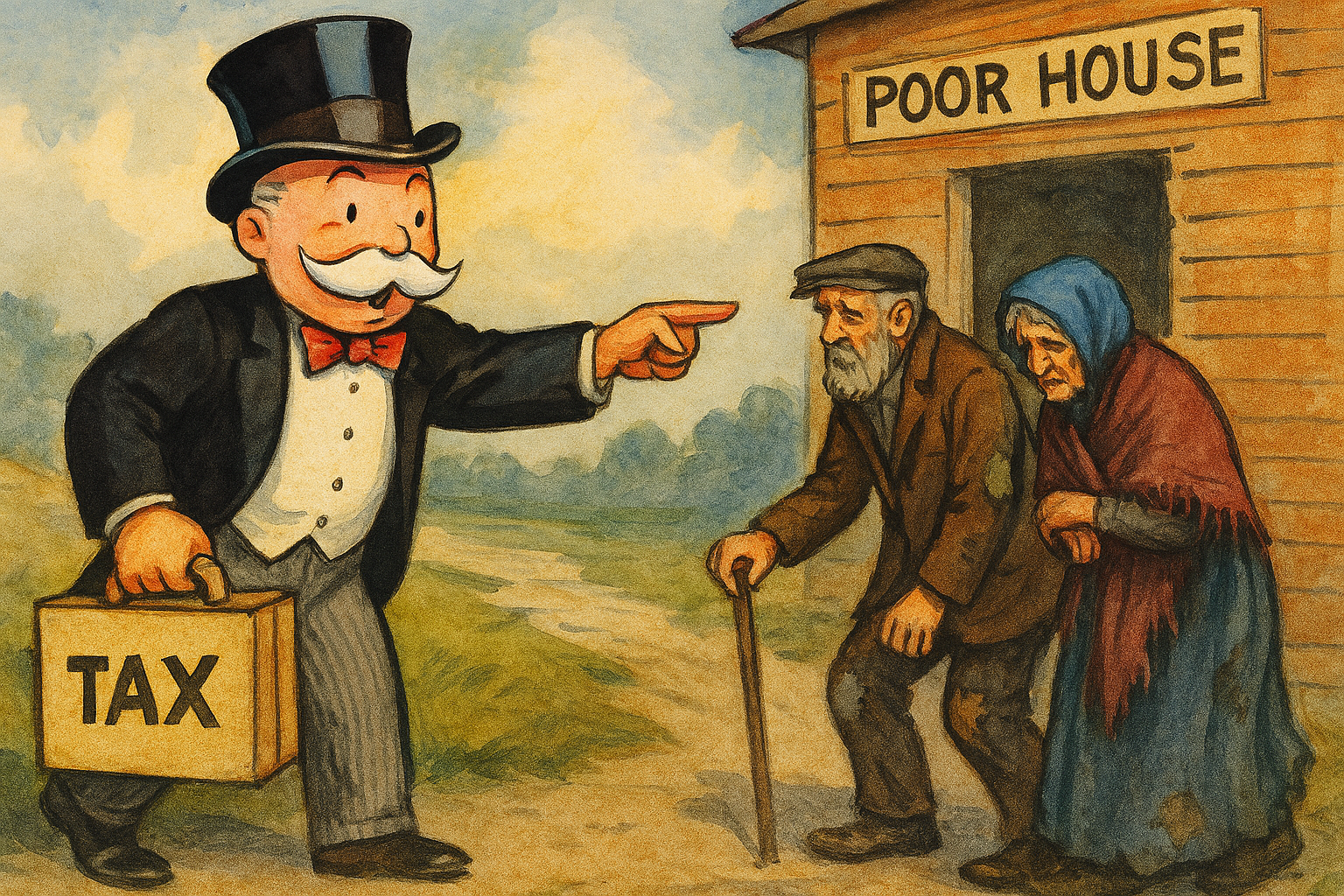Edition No. 3
The Defender
November, 2025
This Edition
- One Flame - Many Torches
- Legislative Charity is Tyranny
- Book Review - The Gold Grift
- Liberty's Sentinel
- Platform Perspectives
- Announcements & Events
- Support Local Business, Media and Conservative Organizations
One Flame - Many Torches
Chairman's Chat
Rob Linebarger
Chair@SpokaneGOP.com
Unity of Purpose vs Unity of Thought
In a pluralistic democracy, unity of thought is neither achievable nor desirable. The strength of a free society lies not in uniformity of opinion, but in the shared commitment to a common purpose. “Unity of purpose over unity of thought” is not just a political ideal—it is a democratic imperative.
Throughout American history, progress has emerged not from consensus of belief, but from collective resolve. The Founders disagreed fiercely—on federalism, religion, and the scope of liberty—but they were united in their purpose: to secure independence and establish self-government. Abraham Lincoln’s leadership during the Civil War was not built on national agreement about race or economics, but on a moral purpose to preserve the Union and end slavery. The Civil Rights Movement, too, was powered by diverse coalitions—religious leaders, labor organizers, students—who did not think alike but marched together for justice.
In today’s polarized climate, the temptation is to demand ideological conformity. But this undermines the very fabric of democratic life. A healthy republic must accommodate dissent, debate, and difference. What it cannot survive without is a shared purpose: the belief that liberty, justice, and the common good are worth striving for together.
Unity of purpose allows us to disagree without division. It invites us to build coalitions, not echo chambers. In a nation as diverse as ours, we will never all think alike—but we can still move forward, side by side, when we are bound by a common cause greater than ourselves.
God Bless,
Special Featured Article
Welfare - SNAP - Taxpayer Funded Charity
A Madisonian Reflection
Legislative Charity is Tyranny
Book Review
The Gold Grift | Dale Whitaker
Book Review by Rob Linebarger
The Gold Grift: Secrets of the American Gold IRA Scam by Dale Whitaker is a must-read for anyone nearing retirement and weighing the idea of converting their IRA or 401(k) into gold.
With a compelling mix of memoir and investigative reporting, Dale exposes how fear-based marketing and patriotic appeals are used to lure responsible savers into overpriced gold IRAs—often with devastating financial consequences.
Dale’s journey begins as a bookkeeper who rises to CFO of a booming precious metals firm. At first, he believes he’s helping Americans protect their retirement. But soon, aided by a debate with his assistant, uncovers a disturbing truth: the company’s profits depend on selling “exclusive” coins at markups of 80–200%, often through misleading tactics. These coins—pitched as rare and secure—are frequently worth little more than their melt value and in 99% of cases, worth less than equivalent retail bullion products initially and over time.
For investors with substantial equity in retirement accounts, this book is a wake-up call. Dale explains how gold companies target people like you—those who’ve worked hard, saved diligently, and want to shield their assets from inflation or market volatility. Ads feature trusted conservative voices and patriotic imagery, urging listeners to convert their IRAs into gold-backed accounts. But behind the glossy brochures lies a ruthless scheme: sales reps use fear of economic collapse, government overreach, and market instability to pressure clients into liquidating traditional retirement accounts and buying overpriced coins.
Dale’s insider view is chilling. He describes how sales teams are trained to manipulate emotions, invoking religious prophecy, political identity, and financial anxiety to close deals. The victims aren’t reckless speculators—they’re responsible savers trying to protect their future. Many end up with illiquid assets they can’t easily sell, and retirement accounts that have been gutted.
As Dale’s conscience awakens, he becomes a whistleblower. He works with regulators, submits testimony to Congress, and helps recover tens of thousands and with the release of this book, possibly millions, in stolen retirement funds. His battles with media outlets and political influencers—some of whom once endorsed the scams—add urgency and drama to the narrative. The book doesn’t just expose wrongdoing; it shows the moral cost of silence and the courage required to speak out.
In the second half, The Gold Grift becomes a practical guide. Dale outlines four major red flags that signal a predatory gold company: inflated pricing, fear-driven marketing, fake scarcity claims, and pressure to convert IRAs. He also provides resources for victims to seek restitution, making the book not only informative but potentially life changing.
For anyone considering gold as a hedge against uncertainty, Dale’s message is clear: be vigilant. His writing is direct, emotional, and grounded in facts, balancing financial analysis with human stories of loss and resilience. He urges readers to think critically about who they trust with their financial future.
In sum, The Gold Grift is essential reading for pre-retirees with equity in an IRA or 401(k). Dale’s journey from insider to whistleblower offers clarity, courage, and a roadmap for ethical investing—empowering readers to ask hard questions, demand transparency, and protect their retirement with wisdom and confidence.
The Gold Grift by Dale Whitaker presently has a 5-Star rating on Amazon

Liberty's Sentinel
 Caleb Collier, host of the Church and State Podcast
Caleb Collier, host of the Church and State Podcast
ChurchandState1776 Podcast on Rumble
Thomas Jefferson's Wall
History & True Intent of Separation of Church and State
Thomas Jefferson’s 1802 metaphor of a “wall of separation between church and state,” written to the Danbury Baptist Association, remains central to debates over religious liberty.
Often misinterpreted, Jefferson’s intent was not to secularize public life but to shield religious practice from government control.
The Danbury Baptists feared their freedoms were state-granted privileges, not inherent rights. Jefferson reassured them that the First Amendment built a barrier to prevent federal interference in religious affairs. His metaphor affirmed that government would neither establish a national religion nor obstruct free religious expression.
Jefferson’s views stemmed from his Virginia Statute for Religious Freedom (1786), which disestablished the Church of England and guaranteed that no citizen would be forced to support religious worship. He saw religious liberty as a natural right essential to human dignity and republican governance. The state, in his view, should remain neutral—not hostile—toward religion, allowing diverse beliefs to flourish without coercion or favoritism.
Importantly, Jefferson did not seek to exclude religious values from civic life. He attended services in government buildings and supported religious charities. His concern was institutional entanglement, not personal expression. The “wall” was a safeguard against tyranny, not a barrier to moral discourse.
Recent legislation in Oklahoma, Louisiana, Texas, and Arkansas—mandating Bibles or Ten Commandments in classrooms—has reignited debate over Jefferson’s metaphor. Oklahoma’s 2024 Bible mandate, later rescinded in 2025, and Ten Commandments laws in three states have faced legal challenges for allegedly violating the Establishment Clause.
Supporters argue these symbols reflect America’s religious heritage; opponents claim they breach constitutional protections. These efforts reflect a broader conservative strategy to challenge precedents like Stone v. Graham (1980) and test the limits of Jefferson’s “wall” in a more religion-friendly judicial climate.
Ultimately, Jefferson’s wall was built to protect religious liberty—not suppress religious identity. Its meaning continues to evolve, shaped by shifting political winds and judicial interpretations.
Candidate's Corner
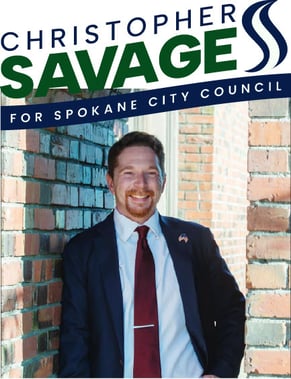
Champion for Change
A Thriving Spokane Starts with Savage Leadership
Christopher Savage is a dedicated community advocate fighting to restore public safety, make housing affordable, and bring real accountability back to Spokane City Hall.
“This city is my home, I’ve done every job from serving food to driving for Lyft. I’ve served on the board of Meals on Wheels, talked directly to those on fixed incomes, and listened to the lived experiences of the homeless.
I’ve seen crime explode in our streets - overdoses, break-ins, and violence. I will listen to you and be your voice because, just like you, I care about this city - our home.
I will make public safety my top priority and eliminate policies that tie the hands of law enforcement officers.”
Christopher Savage - Courageous and Committed
Chris has served Spokane’s seniors, families, and small businesses for years because fighting for our city starts with the people
Chris will fight for real solutions that lower crime, increase housing affordability, and restore public trust in local government.
Chris has always stood up for Spokane and will fight for transparency, fiscal responsibility, and leadership that delivers results.
New This Week from Chris' Campaign
Platform Perspectives
Limited Government
The Spokane County Republican Party believes the proper role of government is to protect the rights of the people and to provide only those critical functions that cannot be performed by individuals or the private sector.
We believe government is best when it governs least!
Rising Property Taxes and Property Assessments
We asked Property Owners and they Answered
On October 9, 2025 an email was sent to all Spokane County Republican Party contacts inviting them to "share their personal story regarding the impact of property tax increases and annual property value assessments."
Below is the summary from those who responded to the survey:
Overview:
Residents of Spokane County express significant concerns over escalating property taxes, which are increasingly unaffordable, particularly for retirees and those on fixed or limited incomes. The rapid rise in property assessments, coupled with a perceived lack of equitable taxation and inadequate county services, is driving many homeowners to consider selling their homes or relocating to more affordable states.
Key Issues:
-
Significant Tax Increases: Property tax assessments have risen dramatically, with some reporting increases of 50–180% over a few years. For example, one resident noted a 280% increase in property valuation since 2019, with land values rising from $70,000 to $105,000 despite a decrease in the value of manufactured homes. Another reported property taxes tripling in less than a decade.
-
Impact on Fixed-Income Residents: Retirees and seniors, many living on fixed incomes such as Social Security, are particularly burdened. Monthly tax payments often exceed previous mortgage payments, forcing some to consider reverse mortgages or selling their homes. For instance, a 78-year-old resident now pays over $400/month in property taxes alone, compared to a $400/month PITI payment in 1990.
-
Perceived Inequity: Residents feel overtaxed and underrepresented, with taxes funding services like schools (despite having no children) or policies they oppose, such as support for homelessness or illegal immigration. Many argue that taxing unrealized property value gains is unfair, especially for primary residences.
-
Failed Appeals and Lack of Transparency: Attempts to challenge assessments have been largely unsuccessful, with residents citing a lack of responsiveness from county officials. Some report arbitrary valuations, such as landlocked parcels assessed at inflated values (e.g., $200,000 for two acres with no access or utilities).
-
Comparative Disadvantages: Residents compare Spokane’s high property taxes to lower rates in states like Idaho, where similar properties incur significantly lower taxes (e.g., $2,800/year in Boise vs. $6,800/year in Spokane). Additional taxes, like capital gains, further exacerbate financial strain.
-
Limited Relief Options: While some benefit from senior, disabled, or low-income exemptions, these are not universally accessible, and eligibility criteria exclude many struggling homeowners. For instance, one couple slightly exceeds the income threshold for relief, facing $450/month in taxes.
Proposed Solutions:
-
Cap Assessment Increases: Residents suggest limiting annual assessment increases to 1%, similar to policies in other states, to stabilize tax burdens.
-
Exemptions for Seniors: Proposals include eliminating property taxes for residents over 65 or those on fixed incomes or fixing taxes at the original purchase price.
-
Tax Reform: Some advocate shifting from regressive property and sales taxes to an income-based tax model to distribute the tax burden more equitably. Others propose taxing underutilized land to encourage market availability while maintaining exemptions for primary residences.
-
Improved County Services: Residents demand better allocation of tax revenue, citing poor road maintenance, inadequate weed control, and ineffective use of funds for schools and homeless policies.
Conclusion:
The rapid rise in property taxes in Spokane County is creating financial hardship, particularly for seniors and those on fixed incomes, threatening their ability to remain in their homes. Residents call for urgent reforms to cap assessments, expand exemptions, and explore alternative taxation models to ensure fairness and affordability. Without action, many fear being forced to sell or relocate, disrupting their lives and communities.
Contact our Republican County Commissioners, Treasurer, and Assessor directly and let them know what you think about the Property Tax Trend in Spokane County.
Announcements & Events




